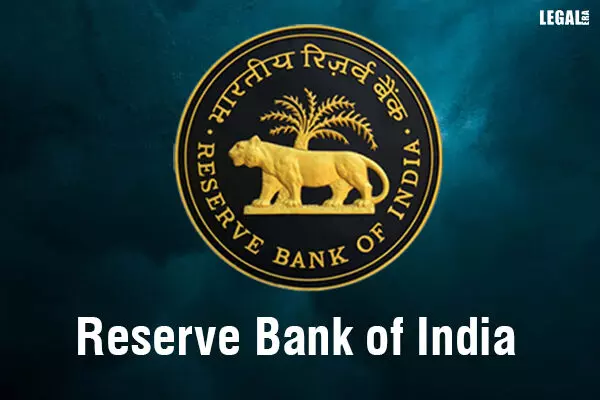- Home
- News
- Articles+
- Aerospace
- AI
- Agriculture
- Alternate Dispute Resolution
- Arbitration & Mediation
- Banking and Finance
- Bankruptcy
- Book Review
- Bribery & Corruption
- Commercial Litigation
- Competition Law
- Conference Reports
- Consumer Products
- Contract
- Corporate Governance
- Corporate Law
- Covid-19
- Cryptocurrency
- Cybersecurity
- Data Protection
- Defence
- Digital Economy
- E-commerce
- Employment Law
- Energy and Natural Resources
- Entertainment and Sports Law
- Environmental Law
- ESG
- FDI
- Food and Beverage
- Gaming
- Health Care
- IBC Diaries
- In Focus
- Inclusion & Diversity
- Insurance Law
- Intellectual Property
- International Law
- IP & Tech Era
- Know the Law
- Labour Laws
- Law & Policy and Regulation
- Litigation
- Litigation Funding
- Manufacturing
- Mergers & Acquisitions
- NFTs
- Privacy
- Private Equity
- Project Finance
- Real Estate
- Risk and Compliance
- Student Corner
- Take On Board
- Tax
- Technology Media and Telecom
- Tributes
- Viewpoint
- Zoom In
- Law Firms
- In-House
- Rankings
- E-Magazine
- Legal Era TV
- Events
- News
- Articles
- Aerospace
- AI
- Agriculture
- Alternate Dispute Resolution
- Arbitration & Mediation
- Banking and Finance
- Bankruptcy
- Book Review
- Bribery & Corruption
- Commercial Litigation
- Competition Law
- Conference Reports
- Consumer Products
- Contract
- Corporate Governance
- Corporate Law
- Covid-19
- Cryptocurrency
- Cybersecurity
- Data Protection
- Defence
- Digital Economy
- E-commerce
- Employment Law
- Energy and Natural Resources
- Entertainment and Sports Law
- Environmental Law
- ESG
- FDI
- Food and Beverage
- Gaming
- Health Care
- IBC Diaries
- In Focus
- Inclusion & Diversity
- Insurance Law
- Intellectual Property
- International Law
- IP & Tech Era
- Know the Law
- Labour Laws
- Law & Policy and Regulation
- Litigation
- Litigation Funding
- Manufacturing
- Mergers & Acquisitions
- NFTs
- Privacy
- Private Equity
- Project Finance
- Real Estate
- Risk and Compliance
- Student Corner
- Take On Board
- Tax
- Technology Media and Telecom
- Tributes
- Viewpoint
- Zoom In
- Law Firms
- In-House
- Rankings
- E-Magazine
- Legal Era TV
- Events
RBI Expands UPI to Allow Pre-Approved Credit Lines

RBI Expands UPI to Allow Pre-Approved Credit Lines
The Reserve Bank of India (RBI) announced that the Unified Payments Interface (UPI) system will now allow users to access pre-approved credit lines from banks for transactions.
This means that users will be able to make payments using UPI even if they do not have enough funds in their bank account. The RBI has said that this will make UPI more accessible to a wider range of users and will help to boost digital payments in India.
Earlier, only the amount deposited in a user's bank account could be used for UPI transactions. This meant that users could not make payments if they did not have enough funds in their accounts.
On April 6, 2023, the RBI initially proposed to expand the scope of the UPI by allowing users to transfer funds to or from pre-approved credit lines issued by banks.
Currently, UPI can be linked to savings accounts, overdraft accounts, prepaid wallets, and credit cards.
The RBI has now expanded the scope of UPI by allowing credit lines to be used as a funding account, as stated in its circular on the “Operation of Pre-Sanctioned Credit Lines at Banks through UPI.”
With the prior consent of the individual customer, a Scheduled Commercial Bank can now issue a pre-sanctioned credit line to individuals. This credit line can then be used to make payments through the UPI system, the RBI said in a statement.
“Banks may, as per their board-approved policy, stipulate terms and conditions of use of such credit lines. The terms may include, among other items, credit limit, period of credit, rate of interest, etc.,” the RBI release added.
The ability to use pre-approved credit lines for UPI transactions can help reduce the cost of these offerings and facilitate the development of unique products for the Indian market.
UPI is a versatile payment platform that supports a wide range of features. It currently handles 75 per cent of the retail digital payments volume in India. UPI has been leveraged to develop products and features that are aligned with India's goal of digitising payments.
Recently, RuPay credit cards were permitted to be linked to UPI. Currently, UPI transactions are enabled between bank deposit accounts, sometimes with the use of prepaid instruments such as wallets.



